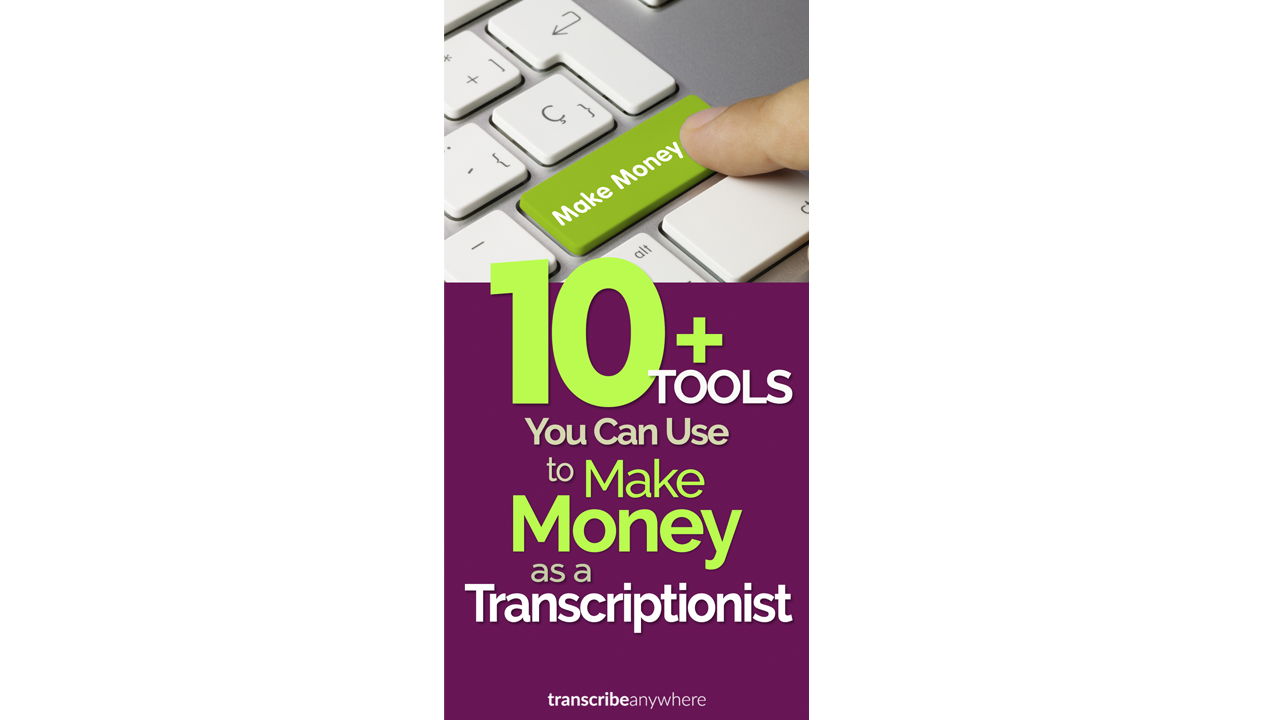10+ Tools for Transcriptionists Who Want to Make Money
Oct 09, 2024
I often get asked what is needed to start a freelance transcription business. People are sometimes surprised to hear that compared to other businesses out there, transcription really doesn't take that much!
So I thought I'd share with you all some of my favorite resources and tools for transcriptionists. You can't be successful in your profession if you don't use the proper tools that your fellow colleagues use... and that your clients expect you to know and use.
Here's a head start on what you need!
Books/References Recommended for Transcription
I recommend the following three resources in my transcription courses. I highly suggest becoming familiar with all three as you'll likely have clients that will want you to use at least one of them.
The Chicago Manual of Style, 17th Edition (CMOS): This is arguably one of the most frequently used resources for general transcription. CMOS is your go-to resource for all things grammar, punctuation, and usage. There is a hardcover book as well as an online subscription, and you can even try out the online version free for thirty days. You've got nothing to lose!
The Best Punctuation Book, Period: This is another book that can help if you're stuck on a punctuation issue. The great thing about this resource is that it includes rules for multiple style guides, including CMOS.
Merriam-Webster Dictionary: This might seem like a no-brainer, but every good transcriptionist should have a dictionary on hand. I recommend using the online version of M-W as it's easier and faster to look up words. You could even take it one step further and purchase the online Unabridged version that combines eight resources into one.
Books About Freelancing and More
In addition to teaching my students how to transcribe, I also teach them how to run their freelance businesses. (And a big reason why my courses stand out from the rest.) There are hundreds of amazing books out there, but here are some of my favorites for freelancers in any industry:
The Freelancer's Bible by Sara Horowitz: At around $10, this book is a steal to have all the information you need to run your freelance business at your fingertips. The author is the founder of Freelancers Union, which is another invaluable resource you should check out if you're thinking about starting a freelance business.
Mindset: The New Psychology of Success by Carol S. Dweck: Running a successful freelance business depends on a lot of things -- including your mindset. The author of this book explores the different types of mindsets and shows how you can achieve anything with the right mindset.
The 7 Habits of Highly Effective People by Steven Covey: This one is an oldie but goodie. It's an excellent resource for personal growth and change that every person -- freelancer or not -- should read.
Skills Improvement Practice
A lot of my students tell me they had to eat a big piece of humble pie when they started my courses. They thought they had a good grasp of grammar and punctuation, but they realized they still had a lot to learn (or relearn). Here are a couple of my favorite sites for the extra practice you might find you need.
The Chicago Manual of Style workouts: These worksheets are a hidden gem! There are currently over twenty exercises ranging in topics from the ever-problematic comma to numbers and hyphens. Be sure to take advantage of the free practice!
Purdue University Online Writing Lab: Purdue OWL is another great resource for extra grammar practice. They have worksheets on a variety of topics that you can print out and practice as many times as it takes to nail the subject ;-)
Equipment/Tools for Transcriptionists
And last but certainly not least, here is the equipment needed to start a freelance transcription business. You can get as fancy or as basic with these as you want, but I suggest buying what you can now and then upgrading later.
Computer with a high-speed internet connection: It's SUPER important that you have a functioning computer with high-speed internet. Dial-up is not going to cut it with transcription work.
Transcription software: Express Scribe is the software of choice for most transcriptionists, but it is by no means the only one available. Some are totally free and some require a small fee.
Decent headphones: Luckily, they can be had for cheap. The stethoscope style is what pro transcriptionists use. They’re the most comfortable and offer the best sound quality at very reasonable prices.
Foot pedal (optional): Most transcriptionists use them, but it’s not required. You can also control the playback of the audio and video files via the Function Keys (F1, F2, etc.) on your keyboard.
Microsoft Word or alternative: Microsoft Word is preferred. The step-by-step guides and tutorial videos included in the courses are based on Word.
Comfortable, ergonomically correct work area: This is not a sit-on-the-couch-to-work type of job. You can start out that way, but I guarantee you'll become increasingly uncomfortable... not to mention the wicked neck and back pain you'll develop. Do yourself a favor and start off with the best work area you can.
Your Turn
Do you have any other suggestions for helpful tools for transcriptionists? Is there a particular resource you use you couldn't do your work without? I'd love to hear about them in the comments!
